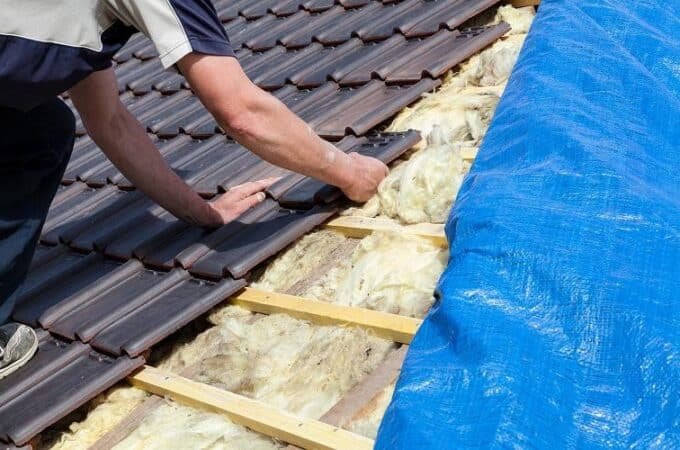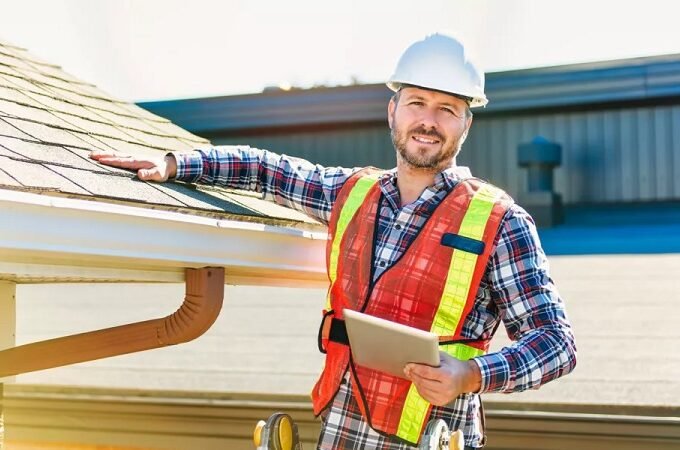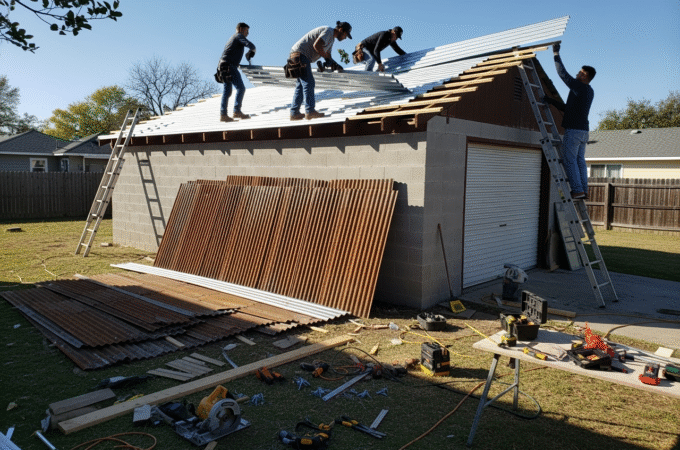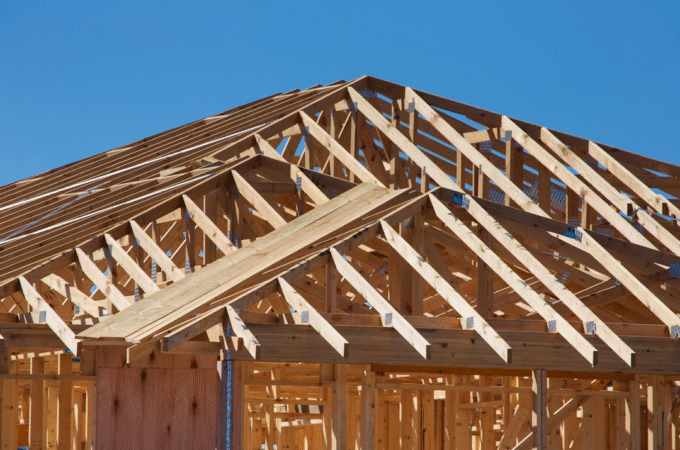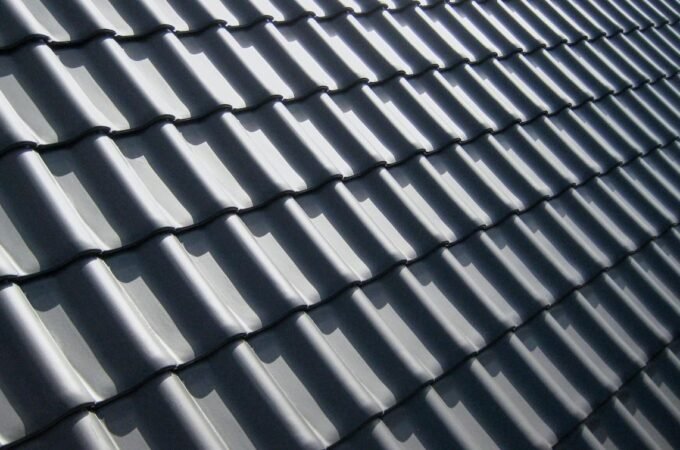
Roof Inspection Windermere: Your Ultimate Guide to Commercial Roof Checkups
Why Proactive Roof Inspections are Non-Negotiable in Windermere
For commercial property owners in Windermere, your roof is more than just a cover; it’s a critical asset. It protects your operations, inventory, and employees. However, Florida’s unique climate presents significant challenges. Intense sun, heavy rain, and strong winds constantly put your roof to the test. Ignoring these factors can lead to expensive repairs, operational downtime, and even safety hazards.
That’s why regular, professional commercial roof inspections are non-negotiable. They are a proactive step to safeguard your investment and ensure business continuity. By catching minor issues early, you can prevent them from escalating into major problems. This not only extends your roof’s lifespan but can also save you substantial money in the long run.
In this comprehensive guide, we will explore the ins and outs of commercial roof inspections custom for the Windermere area. We’ll cover the different types of inspections available, what you can expect during the process, and how they can significantly impact your insurance. Understanding these details is crucial for any commercial property owner. We believe that informed decisions start with thorough understanding, especially when it comes to the integrity of your property. For expertise in navigating these challenges, many local businesses trust professional guidance from Veteran-led Windermere roofing.
In Windermere, Florida, where the estimated population was around 3,057 in 2022, commercial properties are constantly exposed to environmental factors that can accelerate roof degradation. The subtropical climate, characterized by high humidity, intense solar radiation, and frequent severe weather events, makes proactive roof maintenance not just a recommendation, but a necessity.
The Impact of Florida’s Climate on Commercial Roofs
Florida’s climate is notoriously harsh on roofing materials. Commercial roofs in Windermere face a relentless assault from several environmental factors:
- Subtropical Weather: High temperatures and humidity create an ideal breeding ground for algae, mold, and mildew, which can compromise the integrity of roofing materials over time.
- High Winds: Hurricane season (June 1st to November 30th) brings the constant threat of high winds, which can lift, tear, and dislodge roofing membranes, shingles, or metal panels. Even strong thunderstorms outside of hurricane season can cause significant damage.
- Heavy Rainfall: Frequent and intense downpours can expose vulnerabilities in a roof’s waterproofing system, leading to leaks, ponding water, and accelerated material deterioration.
- Thermal Shock: The rapid temperature fluctuations between hot days and cooler nights cause roofing materials to expand and contract repeatedly. This thermal cycling can lead to stress cracks, membrane fatigue, and flashing failures.
- Material Degradation: Intense ultraviolet (UV) radiation from the sun breaks down roofing materials, causing them to become brittle, crack, and lose their protective qualities.
- Algae and Mold Growth: The humid environment encourages the growth of organic matter, which can trap moisture, accelerate decay, and even impact the roof’s ability to reflect sunlight, leading to higher energy costs.
These factors combined mean that a commercial roof in Windermere experiences wear and tear at a much faster rate than roofs in more temperate climates. Without regular oversight, minor issues can quickly escalate into costly structural damage, jeopardizing your business operations.
Protecting Your Investment and Ensuring Business Continuity
A commercial roof inspection is more than just a check-up; it’s a strategic move to protect your investment and ensure uninterrupted business operations.
- Preventing Interior Water Damage:Leaks can damage inventory, equipment, and structural components, leading to significant financial losses and potential health hazards from mold. Early detection through inspections prevents these costly interior damages.
- Avoiding Operational Downtime: A major roof failure can force businesses to close temporarily, resulting in lost revenue, customer dissatisfaction, and damage to your brand reputation. Proactive inspections help avoid such disruptive scenarios.
- Maintaining Property Value: A well-maintained roof is a significant factor in a commercial property’s overall value. Regular inspections and timely repairs demonstrate due diligence and maintain the asset’s worth.
- Tenant Safety and Satisfaction: For properties with tenants, a secure and leak-free roof is paramount for their safety and comfort. Proactive maintenance improves tenant satisfaction and reduces potential liability issues.
By investing in regular commercial roof inspections, you’re not just fixing problems; you’re investing in the longevity of your property, the continuity of your business, and the safety of everyone under your roof.
Decoding the Different Types of Commercial Roof Inspections
Commercial roof inspections are not a one-size-fits-all service. Different situations call for different types of assessments, each with a specific focus and outcome. Understanding these distinctions is crucial for commercial property owners in Windermere to ensure they are getting the right service for their needs.

Routine Maintenance and General Condition Inspections
These are the most common types of inspections and form the backbone of any effective roof maintenance program. They are preventative in nature, aiming to catch small issues before they become significant problems.
- Preventative Care: Regular inspections allow us to monitor the roof’s overall health, identify areas of concern, and address them promptly.
- Identifying Minor Issues: This includes checking for loose fasteners, cracked caulk, small punctures, or areas where flashing might be pulling away.
- Checking Seals and Flashing: These critical components are often the first to fail. Inspectors carefully examine all seals, seams, and flashing around penetrations (vents, pipes, HVAC units) and at edges.
- Debris Removal: Accumulated leaves, branches, and other debris can trap moisture and damage the roofing membrane. Routine inspections include clearing such debris.
- Gutter and Drain Cleaning: Clogged gutters and drains prevent proper water runoff, leading to ponding water and potential leaks. Ensuring they are clear is a key part of these inspections.
Insurance-Mandated Inspections
In Florida, specific inspections are often required or highly recommended by insurance companies, particularly for older properties or to qualify for discounts.
- 4-Point Inspection: This inspection is often required for older commercial properties (typically 30 years or older) when purchasing a new insurance policy or renewing an existing one. It focuses on four critical systems:
- HVAC System: Condition and age.
- Electrical System: Wiring, panels, and overall safety.
- Plumbing System: Visible pipes, water heaters, and fixtures.
- Roof Condition: Age, remaining useful life, and any visible damage. A thorough roof assessment is a significant component of this inspection, providing insurers with a snapshot of the roof’s current state.
- Wind Mitigation Inspection: Given Florida’s susceptibility to hurricanes, a wind mitigation inspection is invaluable. It assesses your commercial property’s ability to withstand high winds and can lead to significant discounts on your windstorm insurance premiums. This inspection evaluates features such as:
- Roof-to-Wall Connection: How securely the roof structure is attached to the exterior walls.
- Roof Shape: Certain shapes (e.g., hip roofs) perform better in high winds.
- Secondary Water Resistance (SWR):An additional layer of protection under the roof covering that prevents water intrusion if the primary roof covering is damaged.
- Opening Protection: The presence and quality of hurricane-rated shutters or impact-resistant windows and doors. The findings are documented on a standardized form (OIR-B1-1802 in Florida), which insurance companies use to calculate potential discounts. To understand more about the specifics of these assessments, you can review resources like those detailing Wind Mitigation Inspections in Dunedin, FL, which showcase the features evaluated to help lower insurance costs.
Post-Storm and Emergency Damage Assessments
After a significant weather event, such as a hurricane, tropical storm, or severe thunderstorm, an immediate inspection is critical.
- Hail Damage: Hail can bruise or crack roofing membranes, dislodge granules from asphaltic surfaces, and dent metal roofs, compromising their protective layers.
- Wind Uplift: Strong winds can lift and peel back roof sections, exposing the underlayment and structure to water intrusion.
- Punctures from Debris: Flying debris can cause punctures or tears in the roofing material.
- Documenting for Insurance Claims: A detailed post-storm inspection report, complete with photographic evidence, is essential for filing and expediting insurance claims. This documentation proves the extent of the damage directly attributable to the storm.
- Immediate Leak Detection: These inspections prioritize identifying and addressing active leaks to prevent further interior damage.
New Construction and Pre-Purchase Inspections
These inspections are performed at critical junctures in a commercial property’s lifecycle.
- Verifying Installation Quality: For new construction, an inspection ensures that the roof was installed according to manufacturer specifications, building codes, and industry best practices. Identifying deficiencies early can prevent future warranty issues and costly repairs.
- Compliance with Plans: We verify that the installed roof matches the architectural plans and specifications.
- Identifying Defects Before Purchase:A pre-purchase inspection provides prospective buyers with a clear understanding of the roof’s condition, potential issues, and estimated remaining lifespan. This information is vital for informed decision-making and negotiation. For insights into how such detailed assessments can reveal critical information, particularly concerning installation quality and potential shortcuts, reviewing examples like Sunshine Coast Roof Inspections can be beneficial. These reports often highlight issues that general building inspectors might miss, safeguarding your investment.
- Due Diligence for Property Acquisition: For investors or businesses acquiring new commercial properties, a comprehensive roof inspection is a fundamental part of due diligence, mitigating risks associated with unforeseen roof problems.
By understanding the purpose and scope of each type of commercial roof inspection, property owners in Windermere can proactively manage their roofing assets, reduce risks, and optimize their investments.
The Anatomy of a Professional Roof Inspection
A professional commercial roof inspection is a systematic and thorough process designed to uncover every detail about your roof’s condition. It goes far beyond a casual glance from the ground, employing specialized techniques and tools to provide a comprehensive assessment.

The Exterior Assessment
This is the most visible and often the most critical part of the inspection, focusing on the roof’s surface and immediate surroundings.
- Roof Covering Examination: We carefully inspect the primary roofing material (e.g., TPO, EPDM, PVC, modified bitumen, metal, asphalt shingles) for signs of wear, damage, or degradation. This includes looking for:
- Flat Roofs: Punctures, tears, blisters, wrinkles, membrane shrinkage, ponding water, compromised seams, and UV degradation.
- Metal Roofs: Rust, loose panels, missing fasteners, damaged coatings, and bent or dented sections.
- Shingle Roofs: Missing, cracked, curled, or blistering shingles, and excessive granule loss.
- Flashing and Coping Inspection:Flashing (materials used to seal joints) and coping (caps on parapet walls) are crucial for preventing water intrusion. We check for:
- Cracks, separation, or dislodgement.
- Improper installation or inadequate sealant.
- Rust or corrosion on metal flashing.
- Checking Drainage Systems:Effective drainage is vital for preventing ponding water and leaks. Inspectors examine:
- Gutters and downspouts for blockages, damage, or improper pitch.
- Roof drains (internal and external) for debris, clogs, and proper function.
- Scuppers for obstructions and adequate flow.
- Inspecting Rooftop Equipment: Any equipment installed on the roof (HVAC units, skylights, vents, solar panels) creates penetrations that are potential leak points. We assess:
- The integrity of seals and curbs around all penetrations.
- Damage to the equipment itself that could impact the roof.
- Proper support and vibration isolation for heavy machinery.
- Identifying Ponding Water: Areas of standing water on a flat roof, especially those that remain for more than 48 hours after rainfall, indicate drainage issues and can accelerate membrane degradation.
The Interior and Structural Check
While the exterior reveals much, the interior and structural components tell another part of the story, often revealing the effects of hidden issues.
- Looking for Leaks or Stains: We examine ceilings, walls, and insulation for water stains, discoloration, or active drips, which are clear indicators of roof leaks.
- Checking Attic or Plenum Space: If accessible, the attic or plenum space above the top floor is inspected for:
- Signs of water intrusion on the underside of the roof deck or insulation.
- Mold or mildew growth.
- Adequacy of insulation.
- Assessing Roof Deck Condition: The structural deck beneath the roofing material is checked for:
- Soft spots, sagging, or deterioration, which can indicate water damage or structural weakness.
- Any signs of rot or pest infestation.
- Inspecting for Structural Sagging:Visible sagging of the roof structure from the interior can be a serious issue, indicating structural compromise that requires immediate attention.
- Verifying Proper Ventilation:Adequate ventilation is crucial for preventing heat buildup and moisture accumulation, which can damage the roof and increase energy costs. We check for blocked vents or insufficient airflow.
Modern Technology in Roof Inspections
Advancements in technology have significantly improved the accuracy, efficiency, and safety of commercial roof inspections.
- Drone Roof Analysis: Drones equipped with high-resolution cameras can capture detailed images and videos of large or inaccessible roof areas quickly and safely. This technology is particularly useful for identifying subtle damage, such as hail impacts or minor membrane tears, that might be missed from the ground or even during a manual walk-through. For a deeper dive into the utility of drone technology in roof assessments, resources like the detailed examination of Roof Inspections in Clitheroe highlight how drones provide comprehensive visual data, even for hard-to-reach sections.
- High-Resolution Imagery: Digital photography and videography provide a permanent record of the roof’s condition, allowing for precise documentation of issues and tracking changes over time.
- Thermal Imaging for Moisture Detection: Infrared cameras can detect temperature differences on the roof surface, which often indicate trapped moisture beneath the membrane. This non-invasive technique helps pinpoint hidden leaks and saturated insulation that are not visible to the naked eye.
- Detailed Digital Reports: Professional inspectors provide comprehensive reports, often including annotated photos, drone footage, thermal images, and clear recommendations for repairs or maintenance. These digital reports are invaluable for property management, insurance claims, and budgeting.
By combining traditional hands-on expertise with cutting-edge technology, a professional commercial roof inspection offers an unparalleled level of detail and accuracy, empowering Windermere property owners to make informed decisions about their roofing assets.
How a Veteran-led Windermere roof inspection Impacts Your Insurance
For commercial property owners in Windermere, the relationship between a professional roof inspection and insurance is multifaceted and highly beneficial. Not only can it streamline the claims process after an unforeseen event, but it can also proactively lower your insurance premiums. Our expertise, honed by a commitment to precision and thoroughness, ensures that every detail is captured and documented to your advantage.
Streamlining Insurance Claims After a Storm
Florida’s climate means that commercial properties are regularly exposed to severe weather, making roof damage a common occurrence. When disaster strikes, a detailed roof inspection can be your most valuable asset in navigating the complex world of insurance claims.
- Providing Evidence of Pre-Storm Condition: A professional inspection conducted before a storm provides a documented baseline of your roof’s condition. This “before” picture is crucial for demonstrating to your insurer that any damage observed afterthe storm was indeed new and directly caused by the event. Without this, insurers may argue that damage existed prior, complicating your claim.
- Detailed Damage Documentation:After a storm, a comprehensive inspection carefully documents all damage with high-resolution photos, detailed descriptions, and measurements. This evidence clearly outlines the scope of repairs needed, making it difficult for insurance adjusters to dispute the extent of the damage.
- Professional Reporting for Adjusters:Our reports are structured, clear, and comprehensive, using industry-standard terminology that insurance adjusters understand. This professionalism helps to expedite their review process and demonstrates that your claim is well-supported.
- Accelerating the Claims Process:With thorough, credible documentation from a professional inspection, the insurance company has all the information they need to process your claim efficiently. This reduces back-and-forth communication, minimizes delays, and gets your business back on track faster. Many homeowners find that a well-documented claim significantly increases the likelihood of full coverage for roof replacement, often meaning they only pay their deductible.
Qualifying for Insurance Discounts
Beyond post-storm recovery, professional roof inspections can lead to significant, ongoing savings on your commercial property insurance premiums.
- Wind Mitigation Credits: As discussed, a wind mitigation inspection assesses your roof’s resistance to high winds. Features like a strong roof-to-wall connection, a specific roof shape (e.g., hip roof), and the presence of a Secondary Water Resistance (SWR) barrier can all qualify you for substantial discounts. These credits are a direct result of verifiable protective features on your roof.
- Proving Roof-to-Wall Connections:Inspectors will verify the type and strength of clips or straps used to connect your roof trusses or rafters to the exterior walls. Stronger connections reduce the likelihood of roof uplift during high winds.
- Documenting Roof Shape: Hip roofs (sloping on all four sides) are generally more aerodynamic and perform better in hurricanes than gable roofs. Documenting this shape can earn you credits.
- Secondary Water Resistance (SWR):This is an underlayment applied directly to the roof deck that acts as a secondary waterproof barrier. If your primary roof covering is blown off, the SWR helps prevent water from entering your building. Its presence can lead to significant premium reductions.
- Opening Protection Verification:While not strictly roof-related, the presence of hurricane-rated shutters or impact-resistant glass on windows and doors also contributes to overall wind mitigation and can be part of the inspection that leads to insurance discounts.
By investing in regular, professional commercial roof inspections, particularly those focused on wind mitigation, Windermere property owners can proactively reduce their insurance burden, improve their property’s resilience, and gain peace of mind knowing their investment is well-protected.
Selecting the Right Commercial Roof Inspector in Windermere
Choosing the right commercial roof inspector in Windermere is a critical decision that impacts the accuracy of your assessment, the longevity of your roof, and potentially your insurance premiums. It’s not just about finding someone who can climb on a roof; it’s about partnering with professionals who possess the right credentials, experience, and commitment to quality.
Key Credentials for a Veteran-led Windermere roof inspection
When evaluating potential inspectors, look for these essential qualifications:
- Florida State Licensing: Ensure the inspector or the company they represent holds the appropriate Florida state licenses for roofing or general contracting. This verifies they meet state-mandated standards for knowledge and practice.
- General Liability Insurance: This protects you from financial liability in case of accidental damage to your property during the inspection.
- Worker’s Compensation: If the inspector has employees, worker’s compensation insurance protects them and you in case of an on-site injury.
- HAAG Certification: This is a highly respected certification in the roofing industry, indicating that an inspector has specialized training in assessing storm damage (hail and wind). A HAAG-certified inspector can accurately differentiate between storm damage, manufacturing defects, and normal wear and tear, which is invaluable for insurance claims.
- Local Experience: An inspector with experience in Windermere and the broader Central Florida region will have a deep understanding of local building codes, common climate-related issues, and the types of roofing materials best suited for the area. This local knowledge is invaluable.
Evaluating a Company’s Reputation and Process
Beyond credentials, the company’s reputation and their operational process speak volumes about the quality of service you can expect.
- Checking Online Reviews: Look for consistent positive feedback on platforms like Google, Yelp, and the Better Business Bureau. Pay attention to comments regarding thoroughness, professionalism, communication, and responsiveness. For example, many roofing companies in the region, such as those highlighted in customer testimonials for Horizon West Roofing, LLC, consistently receive high ratings for their detailed work and customer service. Such reviews offer valuable insights into a company’s commitment to quality.
- Requesting Sample Reports: A reputable inspector should be able to provide anonymized sample reports. Review these to assess the level of detail, clarity of findings, inclusion of photos, and comprehensiveness of recommendations.
- Understanding their Reporting Process: Inquire about how they deliver reports (e.g., digital, hard copy), how quickly you can expect to receive it, and whether they offer a debriefing to explain the findings.
- Inquiring About Follow-up Support: A good inspection company will be available to answer questions after you’ve reviewed the report, and some may even offer assistance in interpreting findings for insurance adjusters or contractors.
By diligently vetting potential commercial roof inspectors based on these criteria, you can ensure you’re entrusting your valuable asset to capable and reliable hands, leading to accurate assessments and informed decisions for your Windermere property.
Frequently Asked Questions about Commercial Roof Inspections
Commercial property owners often have questions about the practicalities of roof inspections. Here, we address some of the most common inquiries to help you better understand this essential service.
How often do commercial roofs in Florida need inspection?
Due to Florida’s challenging climate, commercial roofs in Windermere require more frequent attention than those in other regions. We generally recommend:
- Twice a Year: A minimum of two inspections per year – typically in the spring and fall – is ideal. This allows for proactive maintenance before and after the most intense weather seasons. For instance, comprehensive maintenance plans, such as those described for EverShield Roof Maintenance Plans, often include scheduled yearly inspections to keep roofs in optimal condition.
- After Major Weather Events:Following any significant storm, hurricane, or even prolonged heavy rainfall, an additional inspection is crucial to identify and address potential damage immediately.
- Manufacturer Recommendations:Always adhere to the specific inspection and maintenance guidelines provided by your roofing material manufacturer, as these are often tied to your warranty.
- Age of the Roof: Older roofs, particularly those approaching the end of their expected lifespan, may benefit from more frequent inspections to monitor their condition closely.
What are the red flags that signal an immediate roof inspection is needed?
While routine inspections are preventative, certain signs indicate that your commercial roof needs immediate professional attention:
- Interior Water Stains: Any discoloration, bubbling, or peeling paint on ceilings or walls inside your building is a clear sign of a leak.
- Bubbling or Blistering on Flat Roofs:These raised areas indicate trapped moisture or gases beneath the roofing membrane, which can lead to tears and leaks.
- Clogged Drains or Standing Water: If water is not draining properly from your commercial roof, leading to prolonged ponding, it significantly increases the risk of leaks and accelerates material degradation.
- Cracked or Peeling Sealant: Sealants around penetrations, flashing, and seams are critical. If they appear cracked, brittle, or are peeling away, your roof’s waterproofing is compromised.
- Visible Damage After a Storm:Missing shingles, torn membrane sections, dents in metal panels, or large amounts of debris on the roof are obvious indicators that an inspection is needed.
- Unexplained Increase in Energy Bills:A compromised roof can lead to poor insulation and increased heat transfer, resulting in higher HVAC costs.
- Sagging Roof Deck: Any visible sagging from the interior or exterior indicates a serious structural issue that requires immediate assessment.
Are professional roof inspections in Windermere typically free?
The availability and nature of “free” roof inspections can vary significantly:
- Free Estimates vs. Paid Inspections:Many roofing companies offer free estimates for repairs or replacements. This typically involves a quick visual assessment to determine the scope of work and provide a quote. However, a comprehensive, detailed inspectiondesigned to assess the overall health, identify subtle issues, or provide documentation for insurance purposes is often a paid service.
- Diagnostic Fees: For complex issues or leak detection where the source is not immediately obvious, a diagnostic fee may be charged. This covers the time and specialized equipment needed to thoroughly investigate the problem.
- Insurance Inspections: Inspections specifically for insurance purposes, such as 4-point or wind mitigation inspections, are almost always paid services, as they require certified professionals and detailed reporting. The cost, however, is often recouped through insurance premium savings.
- Maintenance Plan Inclusions: Some roofing companies include complimentary inspections as part of a broader roof maintenance plan, where you pay an annual fee for ongoing care.
- Initial Consultations: Many reputable companies, including our own, offer an initial consultation to discuss your needs and provide an overview of their services, which may include a preliminary visual assessment. If you’re looking to understand the potential scope of work or simply get an initial assessment, we invite you to Get a Free Quote to start the conversation.
It’s always best to clarify upfront what a “free” service entails and what the costs are for a comprehensive professional inspection to avoid any misunderstandings.
Conclusion
For commercial property owners in Windermere, Florida, the integrity of your roof is paramount to the success and security of your business. The unique environmental challenges of our region – from intense sun and humidity to the annual threat of hurricanes – demand a proactive and informed approach to roof maintenance.
By understanding the different types of commercial roof inspections available, what a professional assessment entails, and how these evaluations can positively impact your insurance, you are empowered to make strategic decisions. Regular, thorough inspections are not merely an expense; they are an investment in preventing costly repairs, extending your roof’s lifespan, ensuring business continuity, and protecting your valuable assets.
A well-maintained commercial roof provides peace of mind, allowing you to focus on your operations without the constant worry of leaks or structural failures. Accept the power of professional expertise to safeguard your Windermere property against the elements and secure its future.
Originally from the U.S, Rana Tarakji is an SEO Analyst, the founder of One SEO, a multinational link building company, and the author of “Off-site SEO Guide: A Hands-on SEO Tutorial for Beginners & Dummies”, and a web content specialist who now lives in Beirut, Lebanon. Rana’s work has been published in many print and online magazines and newspapers, such as Entrepreneur, Life Hacker, Upwork, Christian Today, and many more.

